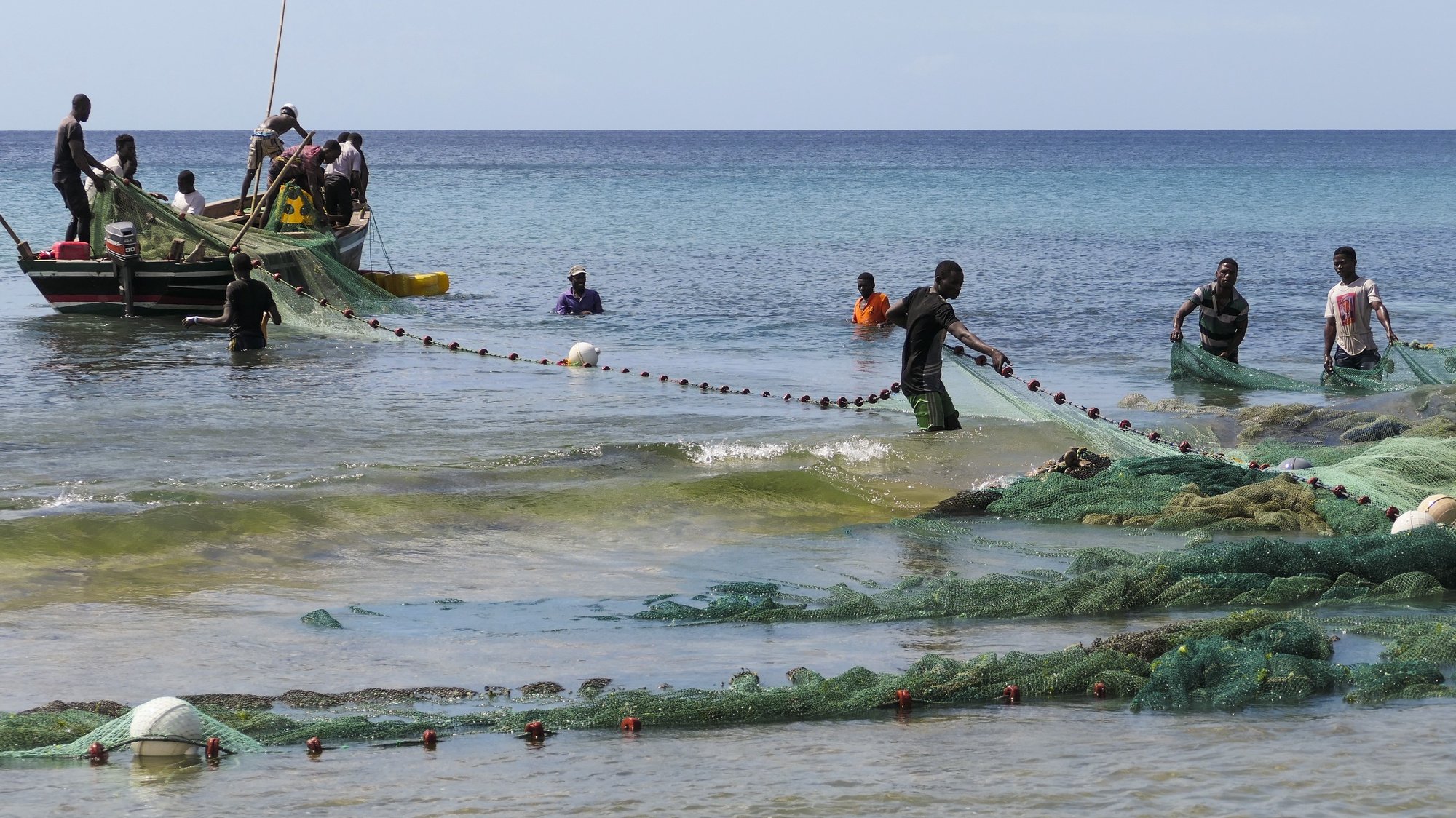Amisse Assane has been a fisherman for 25 years in Cabo Delgado, northern Mozambique, but the rich waters that provided him with income are now closed by security forces due to the armed insurgency in the region.
“It was already possible to make ten thousand meticais [146 euros] someday, but not today,” explains Assne in Kimuani, one of the local languages, which is used by the entire group.
Young people, wearing blouses worn by the sun and salt water, gather on the sands of Pemba, the provincial capital, to pull sea nets, one of the echelons of craft activity.
“Things have changed and we only do, at most, three thousand meticais [44 euros]” in fish, and be divided by the group, which soon begins to work, with artisan nets, from Pemba.
The routine is told with suffering, because Assane, 47, is the father of five children whom he supports with fishing – that’s how he has been since 1997, in a house in Pemba built with the income that has been dwindling.
Since the escalation of armed attacks in 2019, the fishermen have been intercepted by the defense and security forces of the islands of Matemo, Vamizi, Olumbi and the Mucojo area, it reports.
“We used to fish nearby because we had a lot of fish in those areas,” he said.
But the rebel groups that have plagued Cabo Delgado for the past four and a half years have been navigating the same places, sometimes decimating the population, other times mixing with it.
In one way or another, they have been targeted by troops trying to clear the areas, which implies access limitations.
João Bento, 36, another member of the group, says that he had never experienced a time as difficult as this, with rebel attacks and restrictions associated with covid-19, a pandemic that disintegrated the group and paralyzed activities.
Bento’s youngest daughter became ill, with acute anemia due to malnutrition, since she also gets money from fishing to buy food.
The strong security measures on the islands, to avoid contact with rebels, and the prohibition of groups everywhere, to stop covid-19, left him empty-handed.
“My daughter was diagnosed with a problem, anemia, because she was not eating well. All because I didn’t go fishing and all I had to do was eat ‘xima’ [papas] of dry cassava every day, with leaves, without other ingredients”, he tells Lusa.
He looks at the sea with tears in his eyes, because the situation forced him to borrow five thousand meticals (73 euros) to save the life of little Suzana, who was 5 years old at the time.
With their underpants or trousers rolled up, they enter the sea with water up to their knees: a boat has arrived and there are nets with fish to land.
Fishing in the city of Pemba is an alternative to work, but it is far from living up to expectations, says Alberto Nkabassada, 59, the oldest of the group.
He has been in business since 1982 and today he has a son who has a degree, thanks to the work he has done at sea.
“At that time it was a job, today I consider it a chore,” he told Lusa, adding that he is not sure what will happen to his future: life is difficult and he does not master any art other than fishing.
Everyone in the group asks for peace in Cabo Delgado, so that they go back to fishing on the islands of Matemo, Vamizi, Olumbi and along with Mucojo: “There is good fishing.”
“We ask the government to continue reinforcing security, we want to return to areas that were once a success for the group,” concludes Nkabassada, treated by his colleagues as a ‘teacher’.
Cabo Delgado province is rich in natural gas but has been terrorized since 2017 by armed rebels, with some attacks claimed by the Islamic State extremist group.
There are 784,000 internally displaced persons due to the conflict, according to the International Organization for Migration (IOM), and some 4,000 dead, according to the ACLED conflict registration project.
Since July 2021, an offensive by government troops with the support of Rwanda, to which the Southern African Development Community (SADC) later joined, has allowed the recovery of areas where there was a presence of rebels, but their flight has provoked new attacks. . in other districts used as a step or temporary shelter.
Source: Observadora
